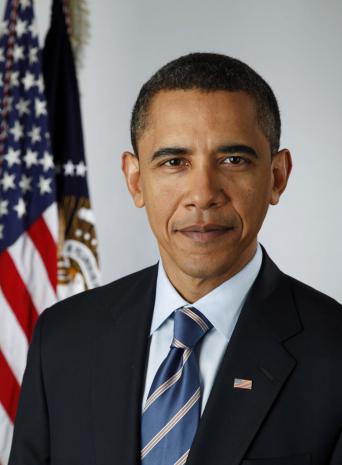
Breaking News
 THEY'LL DO WHATEVER IT TAKES TO ENSURE THIS STAYS HIDDEN
THEY'LL DO WHATEVER IT TAKES TO ENSURE THIS STAYS HIDDEN
 REPORT: This guy is still secretly running key parts of the CIA…
REPORT: This guy is still secretly running key parts of the CIA…
 Historic Aviation Engine Advance to Unlock Hypersonic Mach 10 Planes
Historic Aviation Engine Advance to Unlock Hypersonic Mach 10 Planes
 OpenAI CEO Sam Altman Pitches Eyeball-Scanning World ID to Bankers
OpenAI CEO Sam Altman Pitches Eyeball-Scanning World ID to Bankers
Top Tech News
 "No CGI, No AI, Pure Engineering": Watch Raw Footage Of 'Star Wars'-Style Speeder
"No CGI, No AI, Pure Engineering": Watch Raw Footage Of 'Star Wars'-Style Speeder
 NASA's X-59 'quiet' supersonic jet rolls out for its 1st test drive (video)
NASA's X-59 'quiet' supersonic jet rolls out for its 1st test drive (video)
 Hypersonic SABRE engine reignited in Invictus Mach 5 spaceplane
Hypersonic SABRE engine reignited in Invictus Mach 5 spaceplane
 "World's most power dense" electric motor obliterates the field
"World's most power dense" electric motor obliterates the field
 The Wearables Trap: How the Government Plans to Monitor, Score, and Control You
The Wearables Trap: How the Government Plans to Monitor, Score, and Control You
 The Streetwing: a flying car for true adventure seekers
The Streetwing: a flying car for true adventure seekers
Magic mushrooms may hold the secret to longevity: Psilocybin extends lifespan by 57%...
 Unitree G1 vs Boston Dynamics Atlas vs Optimus Gen 2 Robot– Who Wins?
Unitree G1 vs Boston Dynamics Atlas vs Optimus Gen 2 Robot– Who Wins?
 LFP Battery Fire Safety: What You NEED to Know
LFP Battery Fire Safety: What You NEED to Know
 Final Summer Solar Panel Test: Bifacial Optimization. Save Money w/ These Results!
Final Summer Solar Panel Test: Bifacial Optimization. Save Money w/ These Results!
Despite Democrat talking heads and shills saying otherwise, OBAMA CAN STILL BE INDICTED...

This week, investigative journalist John Solomon told Steve Bannon that former President Barack Obama is unlikely to face legal consequences for his alleged role in the Russia collusion hoax. According to Solomon, the Supreme Court's 2024 decision in Trump v. United States effectively shields Obama under presidential immunity. "President Trump's immunity victory… is gonna protect Barack Obama," he remarked, suggesting the decision created a precedent that insulates former presidents from prosecution. But this interpretation doesn't align with what the Court actually ruled.
Supreme Court Ruling Does Not Grant Blanket Immunity: The 2024 Trump v. United States ruling clarified that while presidents have immunity for official acts, they can still be prosecuted for unofficial, political, or personal misconduct. This undercuts claims that Barack Obama is immune from indictment for actions related to the Russiagate affair.
Obama's Alleged Role Was Political, Not Presidential: Investigative findings, including declassified documents from DNI Tulsi Gabbard, suggest Obama directed a political smear campaign against Donald Trump, involving intelligence officials like James Clapper and John Brennan. Such conduct falls outside protected presidential duties.
Possible Criminal Statutes Apply: If Obama engaged in activities such as lying to federal investigators, orchestrating fraudulent intelligence, or participating in a political cover-up, he could potentially face charges under statutes like 18 U.S.C. § 1001 (false statements), § 1343 (wire fraud), and § 2384 (seditious conspiracy).
Indictment Is Legally Possible, but Politically Unlikely: Although legal pathways for prosecuting Obama exist, journalist John Solomon argues that the political system is unlikely to hold him accountable. Still, the constitutional framework allows for prosecution if compelling evidence shows he acted outside his official role.
Obama likely to face trial and do prison time, despite his arrogance and assumed "untouchable-ness"
Contrary to some public perception, the Supreme Court's decision in Trump v. United States did not grant blanket immunity for all presidential actions. The ruling specifically drew a legal boundary between official presidential acts—those tied directly to the duties of the presidency—and unofficial acts, which include personal, political, or illegal actions taken outside the scope of constitutional responsibility. As the ruling made clear: "The President enjoys no immunity for his unofficial acts… The President is not above the law."
This distinction is critical. If a president engages in unlawful activity unrelated to official duties—such as lying to investigators, committing fraud, or manipulating intelligence—he can still be prosecuted like any other citizen. Several criminal statutes remain applicable regardless of one's former office:
18 U.S.C. § 1001 (false statements to federal officials),
18 U.S.C. § 1343 (wire fraud),
18 U.S.C. § 2 and § 3 (aiding and abetting, accessory after the fact),
and even 18 U.S.C. § 2384 (seditious conspiracy), if applicable.



